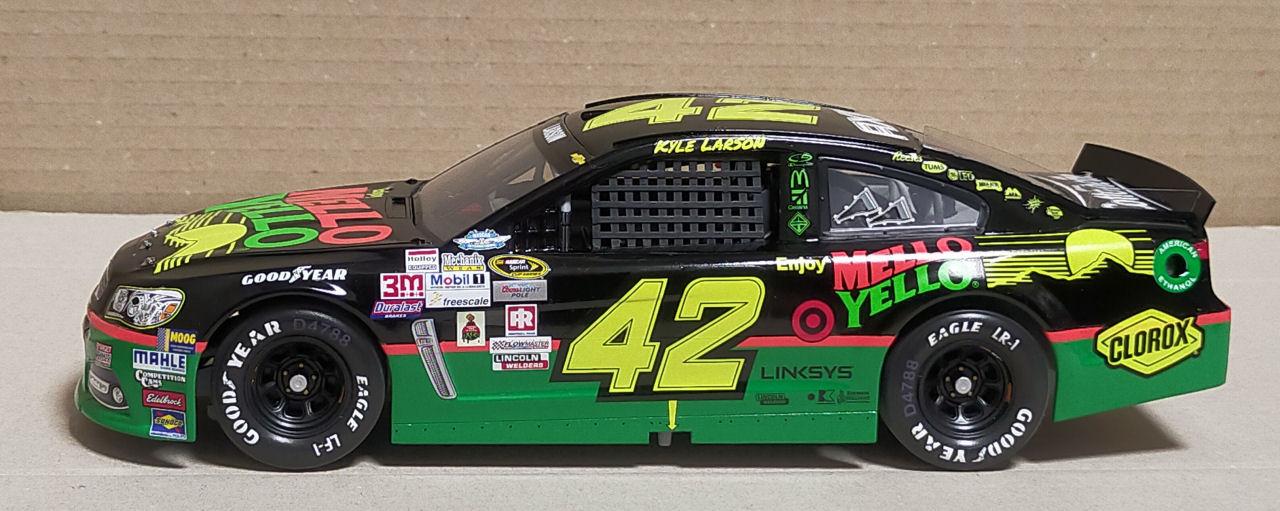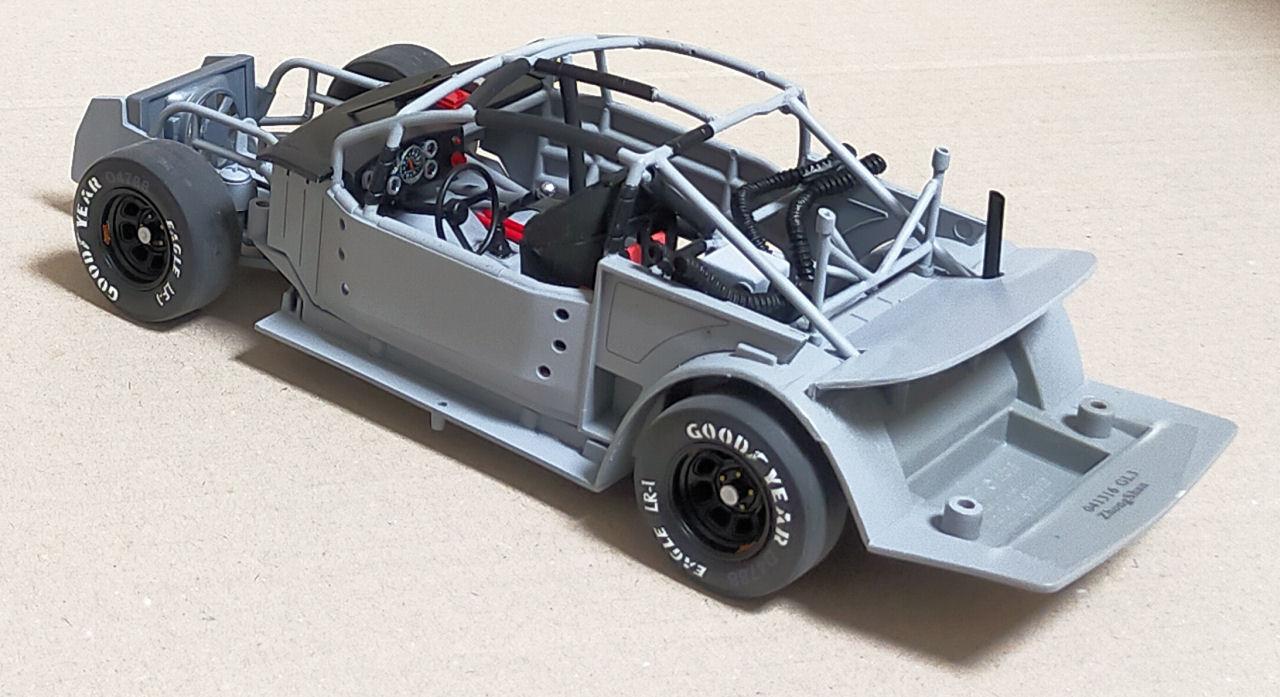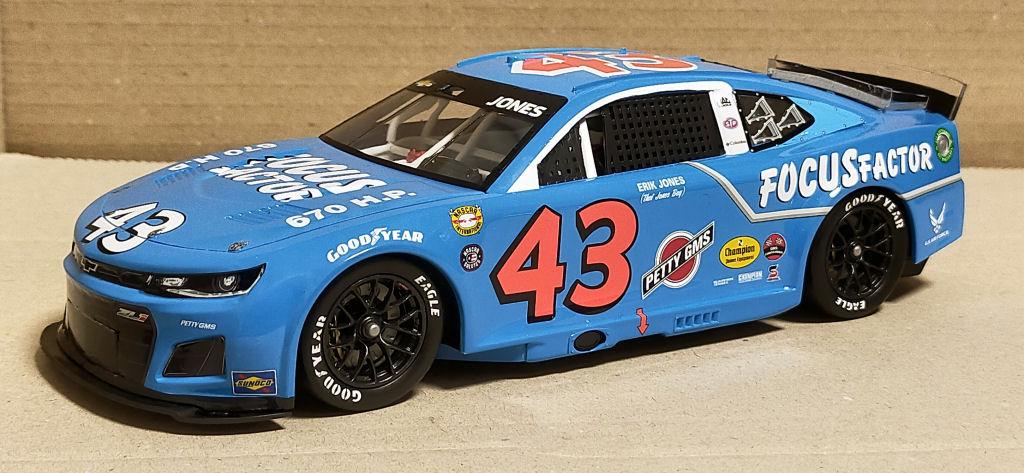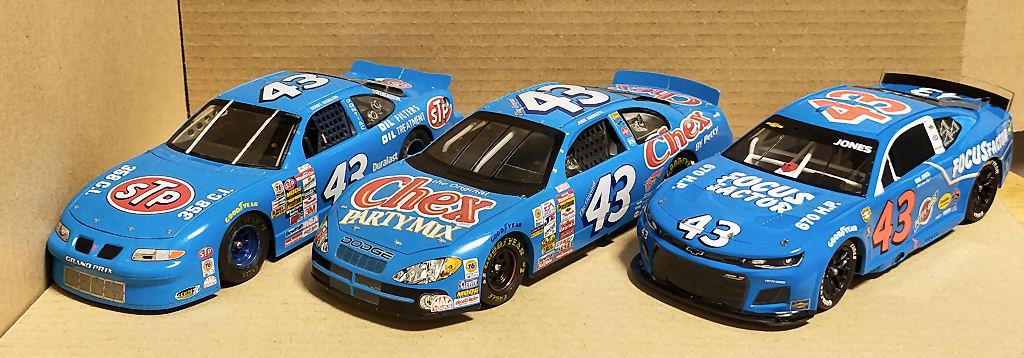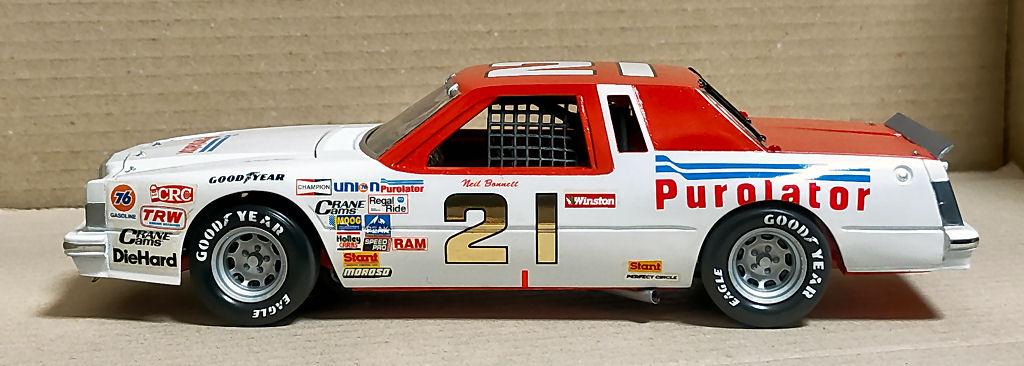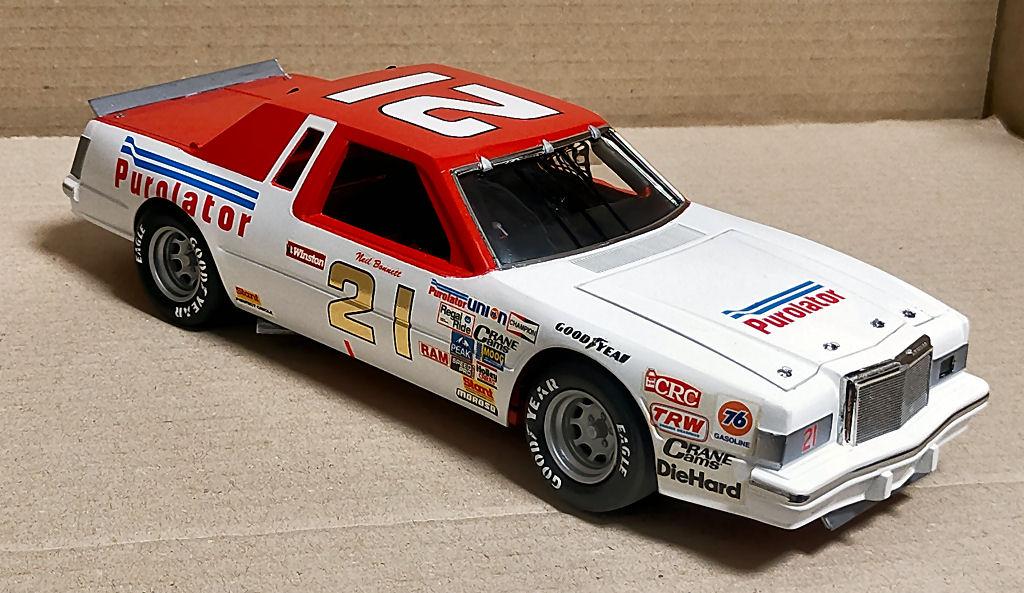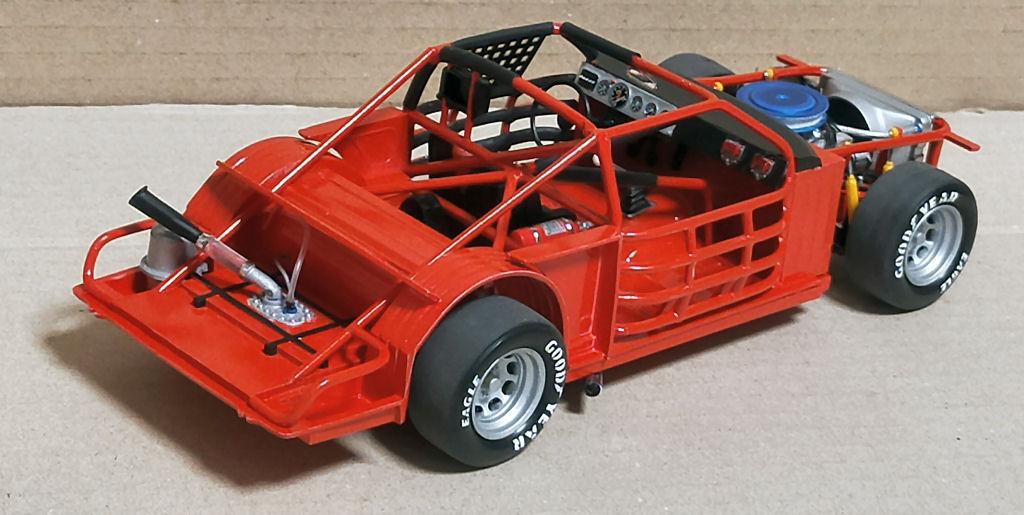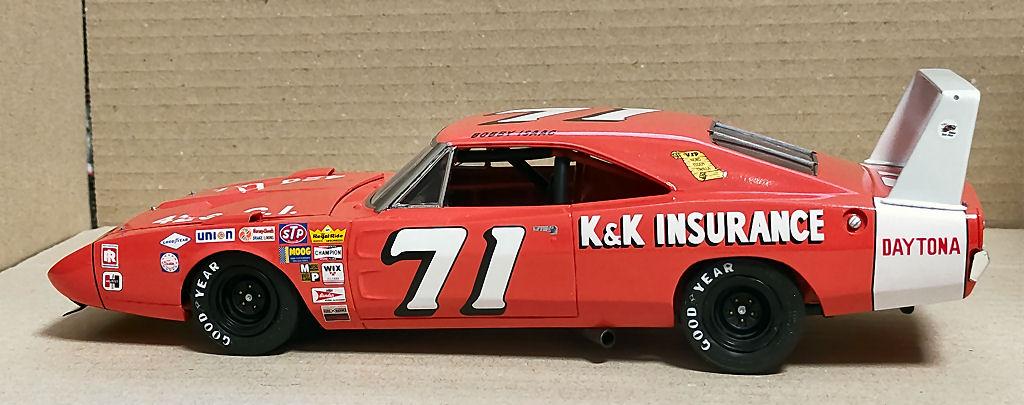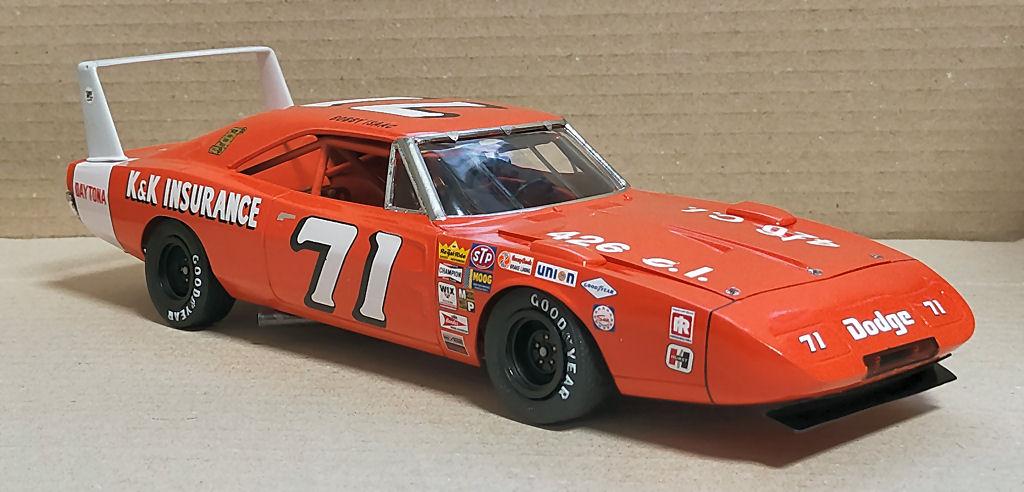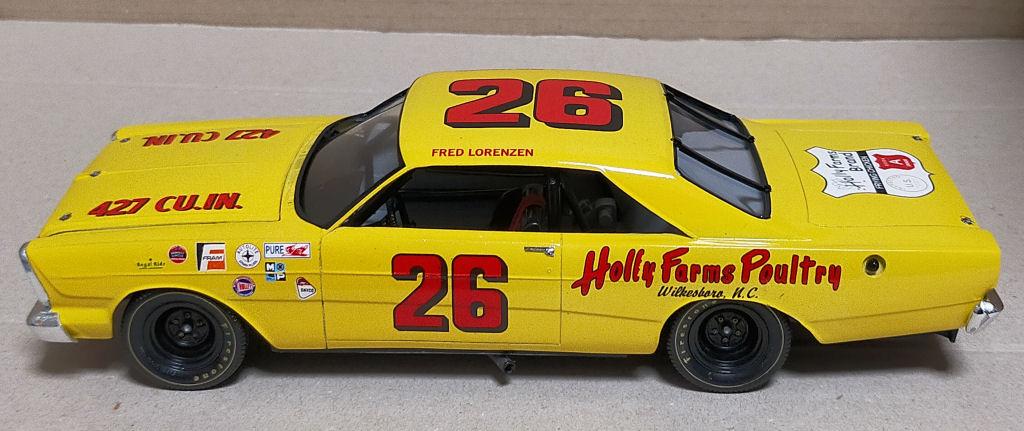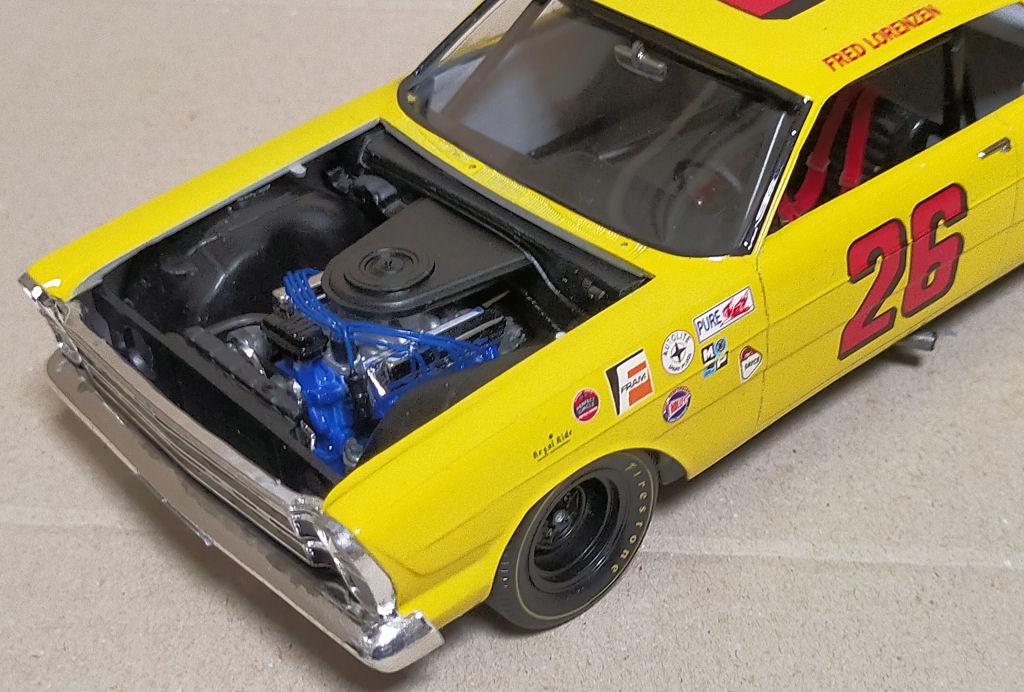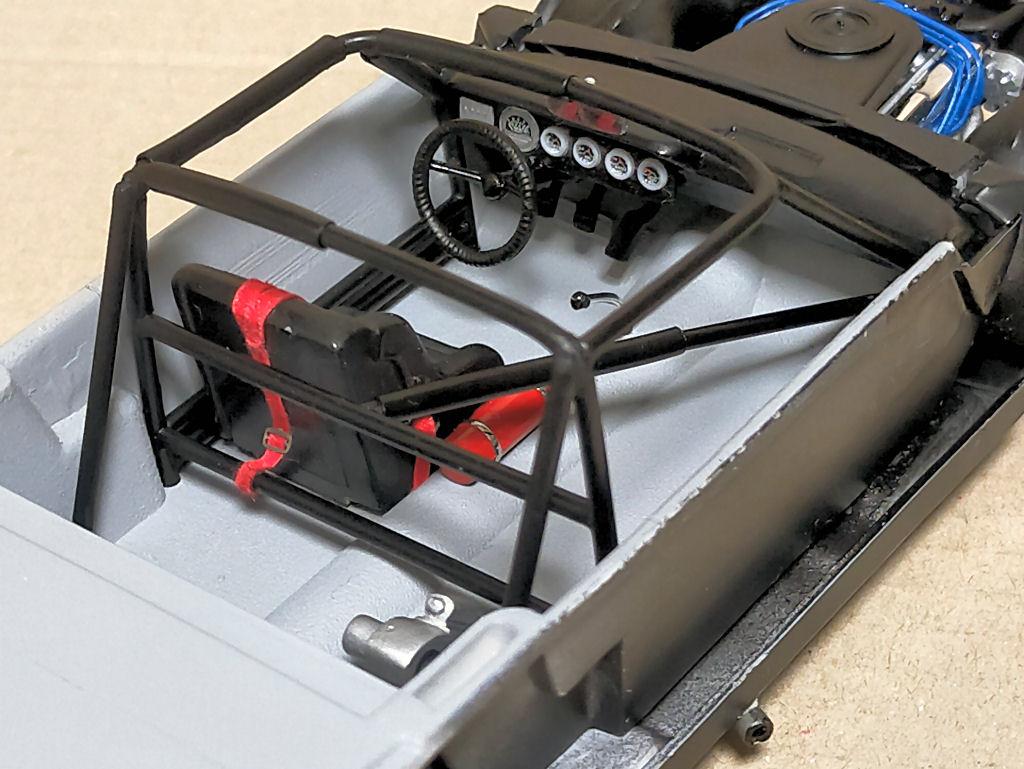
gami8630
Members-
Posts
208 -
Joined
-
Last visited
Content Type
Profiles
Forums
Events
Gallery
Everything posted by gami8630
-
This car is a Chevrolet SS that competed in the Southern 500 at Darlington Raceway in September 2015, team Chip Ganassi Racing Chevrolet and driver Kyle Larson. The paint scheme is the mello yello colour that Tom Cruise drove in the 1990 film Days of Thunder, starring Tom Cruise, which was set in NASCAR. After the film's release, Kyle Petty, son of Richard Petty, drove a car in this livery from 1991 to 1994, making it one of the most famous colour schemes. The base kit is "2016 #48 JIMMIE JOHNSON LOWE'S CHEVY SS" from Revell's "SnapTite Max" series, with the body pre-painted in the basic paint of number 48 Jimmy Johnson. This kit is a snap kit for the younger generation in the same series as the Ford Fusion built in August 2023, with a simplified interior, the engine has been omitted and the chassis has been adapted from that used in the 90s snap kits of the GEN4 era cars, so again the GEN6 The roll cage, dashboard, racing seats and window nets had to be modified to meet the Cup Car regulations of the GEN6. As the instrument panel of the kit has no moulded gauges at all, the instrument frame was glued with plastic pipes after applying the power slide instrument decals, and cut-off switches, warning lamps, etc. were added as appropriate, referring to the real car image of the GEN6 Chevy SS. For the bucket seats, the headrest part of the kit part has been cut off and the pad cut from the sponge seat has been glued in place, and the seatbelt has the seatbelt decal (sold separately) attached. The body was sprayed with Tamiya Super Surfacer (Grey), then sprayed with TS-14 Black and TS-35 Park Green to create a two-tone colour before applying the decals. The last image shows the Chevy SS I built alongside the Mello Yello Pontiac driven by Kyle Petty in 1991. The Mello Yello Pontiac was purchased and built when it was first released by Monogram in 1991. After completion, it was stored in a cardboard box, but after removing it from the cardboard box and refinishing the dusty body, it was restored to its original shine, which was more than I expected when I built it over 30 years ago.
-
This car is the PETTY GMS MOTORSPORTS team Camaro ZL1 entered in the 2022 Cup Series and driven by Eric Jones. The body colour is Throwback schemes from the Goodyear 400 at Darlington in the spring. This is the first time I have built a Next Gen car from Salvinos JR Models. Although this kit is highly detailed and accurate, I had a bit of trouble assembling the suspension sections. The engine and transaxle parts, which are covered for the most part as in the real car, are barely visible after completion, so painting was omitted to a large extent and the engine hood was glued to the body. The body colour is Tamiya TS-23 Sky Blue and the decals are Powerslide #368. The last image shows it side-by-side with a Pontiac Grand Prix and a Dodge Intrepit R/T in a single colour PAINT SCHEMES Petty Blue that I built in the past.
-
This car is a 1981 Ford Thunderbird of Wood Brothers Racing and driven by Neil Bonnett. The base kit is the #15 Wrangler Thunderbird, one of the LEGEND SERIES released by Revell-Monogram in 1998, the NASCAR 50Th Anniversary Year. Watching the early 1980s races on "NASCAR Classics", I can see many so-called 'Square Bird' cars that are surprisingly fast and competing in the top group. So I decided to build this kit, which I bought about 15 years ago. This time it was built almost exclusively from box stock, with only modifications to the wheelbase and the addition of overflow pipes, fuel cell pipework, plug cords, etching mesh to the radiator grille, etc. The body was sprayed with Tamiya Super Surfacer (grey), TS-26 Pure White and the roof was TS-49 Bright Red. Decals used were Powerslide #21 Purolator Mercury Sheet and kit decals Fender Sponsor decals.
- 17 replies
-
- 16
-

-

-
1969 Nascar Champion David Pearson
gami8630 replied to jjsipes's topic in Stock Cars (NASCAR, Super Stock, Late Model, etc.)
429 engine fits nicely. Excellent! -
Polar Lights' chassis was assembled with almost perfect fit in both overall length and width. The shape of the wheel arches did not match the position of the tires slightly, but since they were enlarged and shaped to accommodate the racing tires, this was not a problem. Polar Lights' Ford Torino roll cage fits nicely when aligned with the crossmember at the rear of the chassis, so cut and fixed the front of the cage to match the front firewall. The rear bulkhead was cut from a plastic plate to match the shape of the inside of the body.
-
This car is a Dodge Charger Daytona, one of four "Aero Warriors" NASCAR stock cars sponsored by K&K Insurance and driven by Bobby Isaac. I built JO-HAN's "Plymouth Superbird" over 40 years ago, but this is my first Dodge Charger Daytona. This time, body is a '69 Dodge Charger DAYTONA 2in1 from REVELL's PRO MODELER kit, but the chassis and engine are DODGE CHARGER from POLAR LIGHTS. Body was modified by filling the turn signal lamps and the fuel caps on the upper rear deck with putty, shaping the front and rear wheel openings, adding race-spec fuel filler ports, fuel overflow pipes, catch pins, and front spoiler. Note that the roll cage, rear shock support, wheels, etc. are from the FORD TORINO TARADEGA from POLAR LIGHTS, and the fire extinguisher, shifter, etc. are from my stock parts. Engine is basically box stock with 426 Hemi bathtub intake manifold detailing and plug cords added. Tires are MPC "BLUE STREAK STOCK CAR SPECIAL". Body color is Tamiya Spray TS-31 Bright Orange and decals are Powerslide. Details were not finished very beautifully, but I think I was able to create a certain atmosphere. The last image shows it side by side with JO-HAN's Plymouth Superbird, which was built probably 40 years ago.
- 25 replies
-
- 14
-

-
This car is the Ford Galaxie, one of the most controversial cars in NASCAR history, dubbed the Yellow Banana due to its body style, which was illegally modified for aerodynamic advantage. The base kits are AMT's 1966 FORD GALAXIE 500 7-LITRE and '65 FORD GALAXIE 500XL, both 3-in-1 kits. The body, cockpit, and engine were selected from the 1966 kit, and the chassis from the 1965 kit, and were combined with the necessary additional work. I tried the following modification to Yellow Banana. It is a simple method, but I think I was able to reproduce the body style reasonably well. 1. Front nose is lowered by making a wedge-shaped cut starting from the lower end of the A-pillar and bending it downward. 2. The rear quarter panel is swept upward by making a wedge-shaped cut at the rear end of the C-pillar and inserting a wedge-shaped plastic plate into the cut. 3. The front end of the roof is cut 3mm to the left and right, and the A-pillar is bent backward toward the rear of the body to integrate the roof. Other body modifications include installation of taillight covers, removal of production-spec moldings, emblems, and wipers, and addition of race-spec fueling ports and fuel overflow pipes. Cockpit has a race-spec instrument panel created, seatbelts added, fire extinguisher added, etc. Racing seat is from Monogram's 80's kit parts. Steering wheel is a surplus part from JO-HAN. Roll cage is made by myself with Evergreen rods, but it is not so good. Tires and wheels are PPP Firestone tires and HM-type 10-inch wide wheels. Body was sprayed with Tamiya's TS-16 yellow, but it was little too bright. Decals were made by Gofer Racing and PPP for Galaxy. The missing sponsor decals on the front fenders were used from the decals I had in stock.
- 19 replies
-
- 11
-

-

-
Thanks, Wakefan77, Pierre Rivard, Sledsel, Nitrobarry. Today, many images and documents can be accessed on the Internet. Therefore, gathering the information needed to build model cars has become much easier than it was when I was younger. Nevertheless, the books I purchased in the past are still very useful. These books were also very helpful in the construction of the Fairlane that I built this time.

